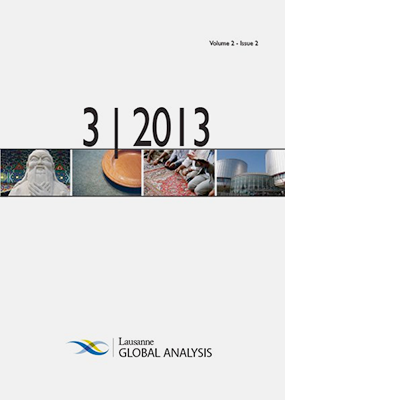Welcome to the March issue of the Lausanne Global Analysis.
Whether you are planning to read the full articles or just the executive summaries, we hope that you find this issue stimulating and useful. Our aim is to help leaders do their jobs better and to aid their decision making by providing them with analysis of current and future trends and developments which will affect their operations and the deployment of resources.
Religious freedom is a fundamental human right; a right that is facing significant challenges in many parts of the world including in the West. In this issue of the LGA, we analyse recent European Court of Human Rights (ECHR) decisions that could have repercussions for religious freedom throughout Europe and beyond. Roger Trigg, Associate Scholar with the Religious Freedom Project, says judgements on four cases before the ECHR could have significant implications for the ability of Christians to witness to their faith in public. In fact he says, ‘The cases can be viewed as part of the ongoing pressure on individual Christians and churches in many places to withdraw from public life into some private ghetto’. He calls for vigilance and political action to oppose the ‘denuding [of] the public sphere of all religious influence’.
While religious freedom in the West faces pressures from court decisions such as these, opportunities are increasing for Christian witness in two key areas where religious freedom has been hard fought.
Thomas Harvey, Academic Dean of the Oxford Centre for Mission Studies, and David Ro, Lausanne International Deputy Director for East Asia, analyse the prevailing ideologies of Neo-liberalism, Neo-leftism, and Neo-Confucianism in China, which have differing views on Christianity and the growth of the church there. There are encouraging signs of more freedom for Christians in China, but political events could lead to ‘nationalist fervour, anti-Western sentiment . . . [creating] . . . greater suspicion of Christianity . . . in China’.
David Emmanuel Singh, Research Tutor in Islamic Studies at the Oxford Centre for Mission Studies, explains that the diversity of Islam in India offers particular challenges for appropriate Christian engagement. Yet Singh states, ‘Plurality in Indian Islam has been helpful in that it has created space for Muslim and non-Muslim players with different aims and interests to engage with each other’. Singh encourages Christians ‘to shift their traditional ecclesial and missional approaches towards focusing primarily on “relations” rather than “conversion”, if they are to advance the kingdom of God [in India]’.
We also look at sobering news of trends in Christian giving and generosity. Sas Conradie, coordinator of The Lausanne Movement/WEA Global Generosity Network, details the results of two questionnaires on giving that were completed by global Christian leaders. The questionnaires show there is still much to be accomplished in helping the church, its leaders, and its members in developing a biblical view of giving. However, Conradie shares encouraging progress on initiatives and resources intended to overcome global barriers to giving, and therefore financial barriers to sharing the gospel.
And finally, Peter Brierley, Lausanne Senior Associate for Church Research, gives one of his regular updates on World Christian Trends from the Center for the Study of Global Christianity at Gordon-Conwell Theological Seminary.
Questions and comments about this issue may be sent to analysis@lausanne.org. The next issue of Lausanne Global Analysis will be released in May.

